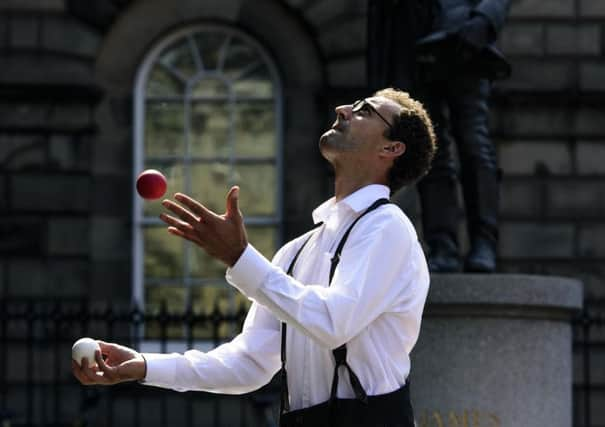Why juggling '˜could help boost pupils' science results'


It says that there is evidence that students respond well to short, 12-minute sessions, broken up with unrelated “spaces” for children to do something different.
Around 2,000 youngsters at 15 schools took part in the study, which aimed to build on neuroscience that suggests information can be more easily learnt and remembered when it is repeated several times, with spells of unrelated activity in between.
Advertisement
Hide AdAdvertisement
Hide AdTeachers were trained to give concentrated lessons in biology, chemistry and physics to 13 to 15-year-olds. These 12-minute sessions were repeated twice, and broken up with activities such as juggling.
Three different versions of the “SMART spaces” programme, developed by the Hallam Teaching School Alliance in Sheffield, were tested, with the same lessons given with breaks of 10 minutes, 24 hours or a combination of both.
The study was designed to find out how and if the scheme could work in the classroom, rather than looking specifically at the impact on pupils’ attainment.
Independent evaluators of the project found that the programme fitted in well with school timetables, teachers found the lessons easy to give and pupils appeared to respond well.
Advertisement
Hide AdAdvertisement
Hide AdThe Education Endowment Foundation (EEF), which funded the study, said it would now look at funding a trial to find out whether the scheme has an impact on GCSE science grades.
Alastair Gittner, project leader at Stocksbridge High School, said: “We hope this will be a time efficient way of helping teachers provide a new revision strategy for all students in science.”
Sir Kevan Collins, chief executive of the Education Endowment Foundation, said: “In SMART Spaces, the Hallam Teaching School Alliance have taken findings from neuroscience research and put them to use in the classroom in a way that teachers and pupils have responded well to.
“The next step for us will be to find out what impact it can have on grades.”